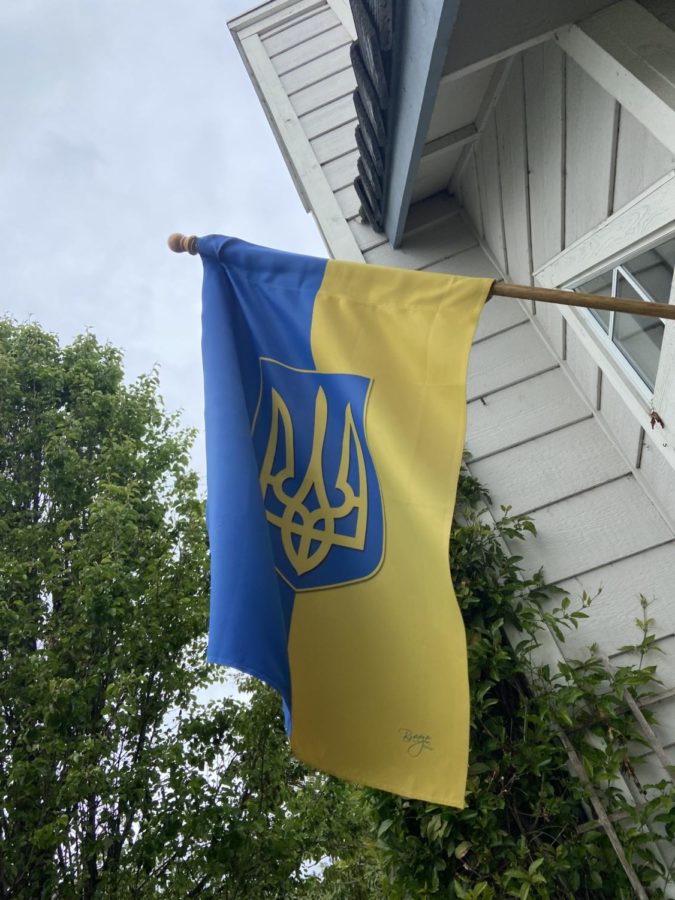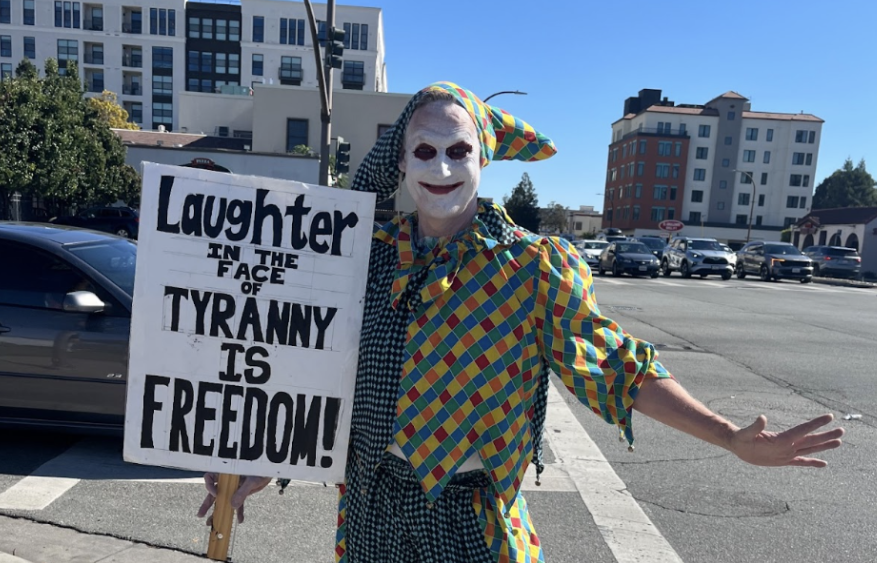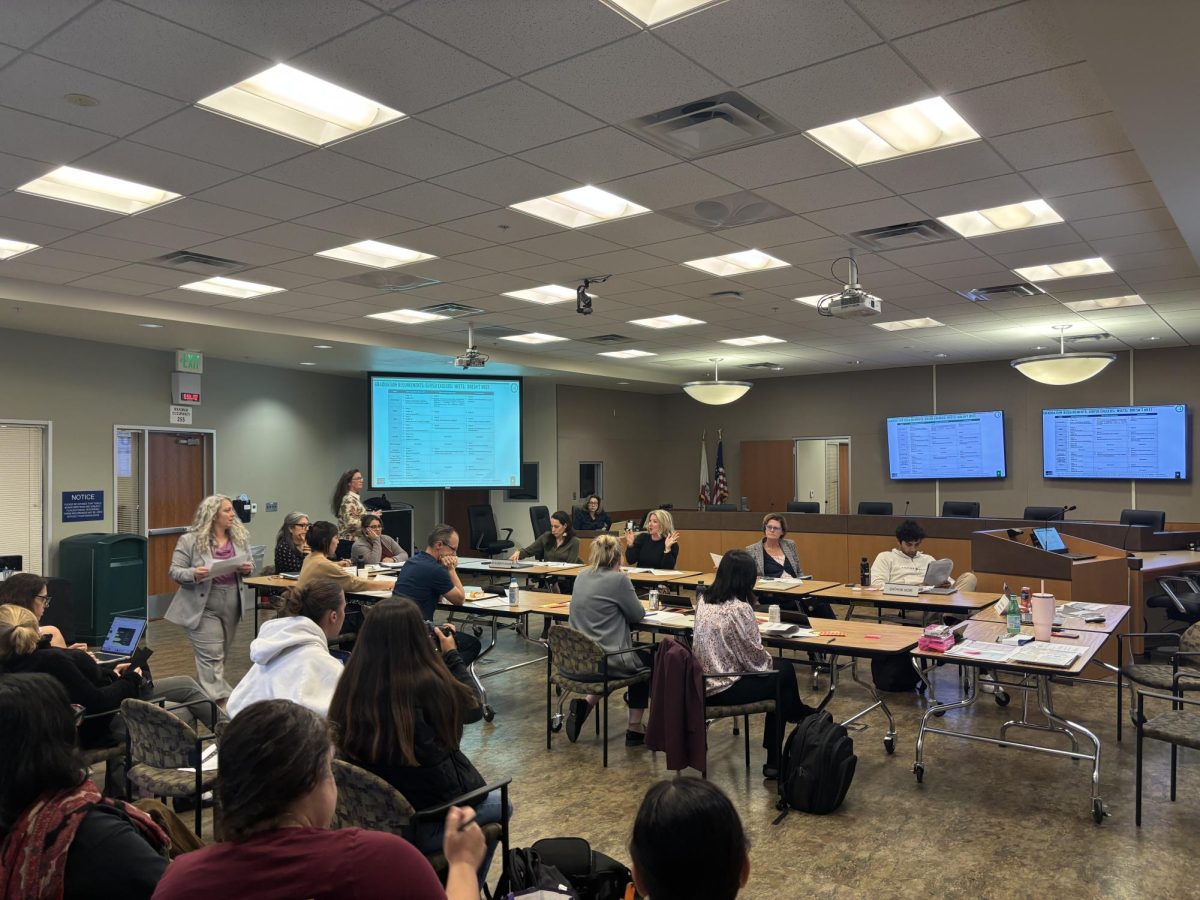The war between Russia and Ukraine has been going on for 54 days now, and as people around the world watch through their phones, a big part of this audience is teenagers.
Russia launched an invasion on Ukraine, February 24th of this year. Ukraine planned on joining National Atlantic Treaty Organization (NATO), a military alliance between 28 European countries and two North American countries, but Russia felt threatened by this potential alliance. Ukraine had originally been a part of the Union of Soviet Socialist Republics (USSR), so Putin used the excuse of liberating Russians in Ukraine to go to war and bring them back into Russia. They expected a quick victory, but Ukrainians have been standing their ground.
It’s commonly known to other countries that Putin and his administration feed false information and control what media and news Russian citizens see.
“I hope that those in Russia that are currently blinded with ignorance … propaganda, and their own unwillingness to see will realize what is happening and take a stance,” Ukrainian Woodside senior Dasha Kamyshenko said. “I think that this war is the opportunity for that.”
Many Russians are supportive of Putin but aren’t aware of everything going on in Ukraine. Any protests against the war from Russian civilians have been shut down by Putin’s police.
“The issue with a lot of Americans and people anywhere is that they’re trying to cancel Russian people,” Ukrainian sophomore Arielle Bruk said. “A lot of it is not even the Russian people’s fault, because a lot of them are brainwashed. There’s a lot of propaganda there, and the people who are speaking out against it are getting arrested.”
Much of the protests against the war have come from the Russians who were already against Putin and his regime.
“I don’t think [the war] affects the way people see Putin, Americans hate him and Russians love him,” an anonymous Russian student said. “I was talking to my grandfather two days ago and he was telling me how while everyone loves Putin in Russia, many, if not most are not in support of the war. But I don’t think it will change their views of Putin. I know many people who came to the US from Russia and it takes them a while to see what kind of person Putin is.”
Almost everyone in the US and other countries are in support of Ukraine, but it hasn’t been discussed amongst students and across social media as much as it’s been in the news.
“I don’t want posting about Russia and Ukraine to become a trend,” Bruk said. “I don’t think people realize the severity of it. And I think it’s pretty sad that at school, barely anyone is talking about it. It’s not being addressed.”
Teenagers have time and time again come to the internet to provide support for causes they believe in, spreading like wildfire across platforms.
“[Teens providing support over the media] obviously doesn’t have any immediate strategic impact, with the war, but I do think it’s important to continue to focus culturally on it because it prevents legitimizing things like this in the future, even on the part of the U.S. or an ally,” sophomore Patrick Van Hoven said. “Most U.S. citizens agree that this is wrong and so the vocal speaking out about that on the internet, I think will prevent future occurrences such as this war.”
The U.S. has provided weapons and enacted sanctions like banning imports on Russian oil but has not entered the war. The Czech Republic has been the only country to join so far by sending tanks to aid Ukraine on April 5.
“I feel like the United States has a long history of intruding into conflicts with force where it is not beneficial and in the end actually affecting the conflict and any hope of revolution negatively,” Kamyshenko said. “So I think sending support is good, [but] not entering the war.”
NATO is in a difficult situation because Ukraine never officially joined so there is no obligation for them to help and Putin is threatening nuclear war with any country that interferes.
“We need to be really careful not to get into war with Russia,” Van Hoven said.
“If the threat of nuclear weapons did not exist, I believe that the U.S. would probably, at least by now, have gotten involved militarily in Ukraine. But because of mutually assured destruction, we really can’t.”
15 countries separated from the Soviet Union after its collapse in 1991. Many, such as Moldova, Azerbaijan, and the Baltic states, are not very well known.
“Ukraine is going to be recognized more as a real place,” Bruk said. “I think so many people didn’t even know what it was before then. There’s people calling Ukraine “the Ukraine”, which it’s not. I think a lot of people just didn’t even know what that was. The benefit is they have a lot of support and more people know the country exists.”
For years before the war broke out in Ukraine, there was a lot of tension and unease. People were especially unhappy with President Zelenskyy. Since the war started, he has gained much more support.
“As horrible as is to say, this war is doing wonderfully for Ukraine’s unity,” Kamyshenko said. “Giving them a common purpose to stand up and defend their democracy and their country. So it will create a better standing for them in the world as a whole and for themselves.”
There doesn’t seem to be a clear victor in sight, but Russia is currently getting ready to battle on Ukraine’s eastern Donbass region, in what will be a crucial conflict in determining the trajectory of the war.
“I don’t know [if the war will end],” the anonymous Russian student said. “My family is so affected by the whole situation, many of them can’t even listen to the news because it’s too heartbreaking to hear or just because of how much this war is affecting them so I truly couldn’t tell you. Of course, I hope it ends soon.”
The battle in Donbass is likely to be brutal and the outcome could possibly end in a draw with both Ukraine and Russia too tired and beaten to continue.
“I hope and expect Ukraine to be victorious, hopefully with no more or not as many casualties as there are now,” Kamysehnko said. “I hope that the world further sees Russia for what it truly is right now and takes action as a whole to not repeat these crimes.”
There are very few countries in support of Russia, so even though the war is just between Ukraine and Russia, if it spreads to foreign countries Russia will be at a disadvantage.
“[Russia] just keeps losing and other countries just keep sanctioning them,” Van Hoven said. “Their economy is in shambles. I think this is going to be the beginning of the end of their decline on the world stage . . . so I do think that Ukraine will remain sovereign at the end of this. I just don’t know how long that will take.”
The war will have other unavoidable effects and consequences besides political ones that are dependent on who wins.
“I think [the war] just makes U.S. citizens and Americans hate Russia much more,” the anonymous Russian student said. “It just sucks because while I do not support their government I love my friends and family who live in Russia . . ., and I would hate for the younger generations to dislike every aspect of Russia. It’s not every civilian’s fault that Putin charged into war.”
Social media has been substantially utilized to debate and share ideas around the world instead of just consolidating in local areas.
“[The older generation] didn’t have the internet, they weren’t exposed to things that their surroundings didn’t expose them to,” Bruk said. “So I think if anything, we’re going to be better leaders than them to a certain extent.”
Foreign disagreements are supposed to be settled peacefully between countries, but Putin has broken many international laws and is currently under investigation for war crimes.
“This isn’t how international politics is designed and supposed to work,” Van Hoven said. “I think that that’s important to instill in younger generations that these things do happen and that it’s not okay.”
Politics and government are dominated by older generations, but with young people having so much to say it leads to the question of how they will lead the world.
“I think the younger generation is leading us to, hopefully, a better future where we’re strong advocates,” Kamyshenko said. “A lot of us are speaking up about things that our parents and their parents were too afraid to say or too ignorant to say and I think we’re going to lead to a better world.”









